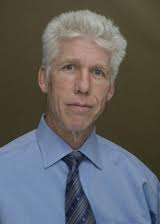The original article can be found in: Trinidad Guardian By Camille Clarke
Heart disease, the leading cause of death in Trinidad and Tobago, could increase by 150 per cent by 2020. That was the warning from Dr Richard Lange, professor of medicine at the Johns Hopkins Hospital and the University of Texas, who said schematic heart disease could increase by 140 per cent and cerebral vascular disease by more than 135 per cent.
Lange gave those dire predictions when he addressed cardiologists and other stakeholders at a graduation ceremony at Buzo Restaurant, Newtown on Tuesday evening for the five participants in a twoyear cardiologist training programme. “There was an article published in a medical journal that predicted what will happen in the next 20 years in Trinidad and Tobago. A report in 2001 said it is the leading cause of death and beats cancer, other infectious diseases and TB (tuberculosis),” said Lange. “There is an increase in heart disease because there is an increase in obesity, high cholesterol and diabetes which are risk factors but they can be managed.
“We see patients and outpatients and have an interest in prevention. It is important for citizens to know if they have the risk factors and once they have the disease, the opportunity to prevent it is there. We turn things around by making people aware through education.” Lange said excessive drinking of alcohol, damage to the arteries and blood pressure are risk factors, but there are natural remedies and one’s condition can be checked by regularly measuring blood pressure and blood-sugar levels.
“Alcohol in moderation is the key. One glass for women and two for men. In New York we exponentially decreased fat intake by 70 per cent in pizza, chicken and burgers. The food still tastes good,” he said. He also said exercise can prevent heart disease, but many people do not exercise on a daily basis to reap the benefits. Cardiologist Glenn Hirsch, also of Johns Hopkins, said there is a long list of people in T&T who suffer from cardiovascular disease and hypertension.
Hirsch said there is a high incidence of hypertension, which leads to coronary disease, in people of African and southeast Asian descent. “To combat these diseases, we needed more troops. There are problems with lifestyle, diet and exercise and we lecture those doctors who are the primary healthcare physicians at the frontline to prevent this. Food we eat and other things contribute to that, but I think it is preventable,” he said. Jagadeesh Yella was the only graduate in the programme given a certificate on Tuesday. He got the opportunity to be a cardiologist through a collaboration involving Johns Hopkins University, the T&T Health Science Initiative and the University of Trinidad and Tobago (UTT), the administrator of the programme.
Five doctors took part in the fellowship training and have been assigned to the San Fernando General Hospital, Sangre Grande Hospital and the Eric Williams Medical Sciences Complex at Mt Hope. They studied the factors leading to heart failure, imaging, intervention, electrophysiology and all facets of cardiology. Hirsch said many doctors who are trained stay abroad. However, recently cardiologists Clifford Thomas and Godfrey Aleong were recruited back to the public sector. He said cardiologist consultant Trisha Cummings, who has been practising for the past 18 years, will now have five more specialists in the field to render assistance.
Eastern Regional Health Authority CEO Stacey Harricharan, who attended the event, said the Sangre Grande Hospital will benefit from the expertise and training when newly graduated cardiologist Yella is assigned. “We sensitise our clinicians of the opportunities and we generally try to make sure they can benefit from all the programmes and impart their skill. We will try to ensure all the resources will be available to him in August,” Harricharan said. In addition to Yella, the cardiology fellows are Reshma Singh, Bruce Bird, Shari Khan and Fareed Ali, who will complete their training next February














